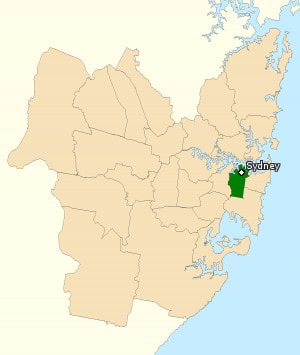Welcome to the World of NSW Sydney’s Electorate System!
Hello there, fabulous Sydney parents! Ever wonder about the intricacies of the electorate system that governs our sunny Sydney in New South Wales? Well, you’re in for a treat! It’s time to make sense of this crucial aspect of our democracy—and guess what? It’s as colorful and vibrant as Sydney itself!
If you’re a parent in NSW Sydney, it’s crucial to understand the electorate system, not just for your knowledge but to inspire your kids about the importance of civic participation. This joyful ride through the electorate guide will give you the lowdown on everything you need to know. Let’s dive in and discover the magic behind those polling booth curtains!
The Basics of Electorates in NSW Sydney
Let’s start with the super-basics, shall we? The term “electorate” refers to a specific geographical area represented by an elected Member of Parliament (MP) in the NSW Legislative Assembly, or for federal purposes, in the House of Representatives. Think of it as a puzzle piece in the grand democratic jigsaw that is Australia.
Each NSW constituency has its unique flair and community spirit, with distinct needs and interests—which makes your role in understanding it all the more exciting!
Why It Matters for Parents
As a parent, you’re not just raising children; you’re nurturing the next generation of informed voters and community leaders. Knowing the electoral ropes enables you to instill values of responsibility and engagement in your little ones from the get-go. So, let’s unfold the New South Wales electorate system—after all, it’s your ticket to raising community-savvy kiddos!
Finding Your Place in the Electoral Map
Are you nestled in the lush green suburbs of the Northern Beaches? Or perhaps bustling through the energetic streets of Inner Sydney? Wherever you call home sweet home, you have a place in the electorate map. Knowing your electorate gives you the power to vote for the representative who will voice your community’s needs and aspirations.
- Identifying Your Electorate: You can easily find out which electorate you belong to by visiting the NSW Electoral Commission website and popping in your address. Quick, simple, and oh-so-rewarding!
- Understand Your Electorate’s Profile: Familiarizing yourself with the demographics, socio-economic status, and key issues in your electorate can empower you to make an informed decision at the polls. Plus, it’s a fantastic conversation starter at your next neighborhood barbecue!
Your Electorate, Your Representative, and You
Now, let’s channel our inner explorers and get to know that special representative of ours. They’re no mythical creatures; they’re real people tasked with an extraordinary job—representing you! They take your local concerns to Parliament, advocating for change that resonates with your community’s heartbeat.
- Meet and Greet: Why not take a family outing to one of your MP’s local events? It’s a great way to engage and understand their values and work.
- Stay Informed: Follow their journeys, initiatives, and debates. This not only bolsters your community knowledge but also shows your kids the importance of being up-to-date with local politics.
Understanding the electorate system in NSW Sydney is like mapping the stars in the sky – a beautiful way to navigate your family’s civic journey. So, fly high, dear parents, and let’s treasure this democratic voyage for our kids’ brighter tomorrow!
As we continue this guide, remember that each ballot you cast and every bit of initiative you take helps shape the very fabric of NSW Sydney. Stay tuned for the next leg of our journey where we delve deeper into the exciting realm of elections and how, together, we can make a difference—one family and one vote at a time.

Five Essential Things Parents Should Know in Preparing for the NSW Sydney Electorate
Ready to become an electorate whiz? Here are five crucial tidbits to guide you as you navigate the exciting waters of NSW Sydney’s electoral process:
1. Voting Essentials: Keeping Democracy Alive
Voting isn’t just a right; it’s a celebration of democracy. Make sure you’re enrolled to vote, and understand that voting is compulsory in Australia for citizens 18 years and older. Wrangle the whole family when election day comes, and show your kids the ropes of participating in a societal milestone! Keep abreast of the voting locations near you, the necessary forms of ID to bring along, and the different ways to vote, including pre-polling and postal votes for those can’t-make-it moments.
2. Engaging with Your Community: More than Just Your Backyard
Involvement in community events and issues isn’t just about attending the odd school fair. Encourage your children to understand what’s happening in their wider community. From council meetings to local environmental initiatives, show them the importance of lending their voice and hands to make their home a better place.
3. Education is Key: Talking Ballots over Breakfast
Political literacy begins at home. Chat about current events, debate policies, and analyze campaigns. Make it relatable—compare voting to choosing a school captain or deciding on a family outing. Every discussion molds your child’s future approach to citizenship.
4. Being Candidate Savvy: Know Who’s Who in the Ballot Zoo
As election day approaches, introduce your children to the candidates. Discuss what they stand for and how they plan to improve your community. Remember, teaching your kids about the different parties and representatives fosters critical thinking and helps them to make independent choices later in life.
5. The Power of One Vote: Every Tick Counts
Impress upon your children that every single vote can be a game-changer. History is filled with tales of elections decided by razor-thin margins. By understanding the weight of their vote, kids grow up respecting the right and responsibility that comes with that small but mighty pencil cross.
Equipping Your Family for Electoral Engagement
Now that you’re armed with the basics, it’s time to get you fully kitted out. Bookmark resources like the NSW Electoral Commission’s website, set up news alerts for local electorate happenings, and look for children-friendly materials that simplify the concepts of government and voting.
Get hands-on as well! Create a family voting day tradition, craft a DIY ballot box for family decisions, or participate in mock elections to demystify the process.
Being well-prepared and knowledgeable about the electorate system isn’t just beneficial for you, it’s a legacy of civic pride you pass down to your children. It cements the foundation of not just strong voters, but engaged, empathetic, and informed citizens of tomorrow.
And remember, your interest and excitement are contagious! The more curious and enthusiastic you are about the political climate in NSW Sydney, the more your children will catch onto that spirit. This is the art of weaving democracy into the tapestry of everyday life, making each of us a vibrant, contributing thread.
Understanding the electorate system in NSW Sydney is more than just about understanding boundaries and voting procedures; it’s about embracing the values and responsibilities we share as a community. As parents, your role is pivotal in guiding the next generation to take the helm and steer our city towards an even brighter future. Let’s raise not just kids, but future leaders, thinkers, and changemakers.
Happy voting, Sydney parents! Together, let’s build a knowledgeable, proactive, and community-driven electoral culture for us and our children.
For more great articles please see here. For more information see here
Disclaimer
The articles available via our website provide general information only and we strongly urge readers to exercise caution and conduct their own thorough research and fact-checking. The information presented should not be taken as absolute truth, and, to the maximum extent permitted by law, we will not be held liable for any inaccuracies or errors in the content. It is essential for individuals to independently verify and validate the information before making any decisions or taking any actions based on the articles.




